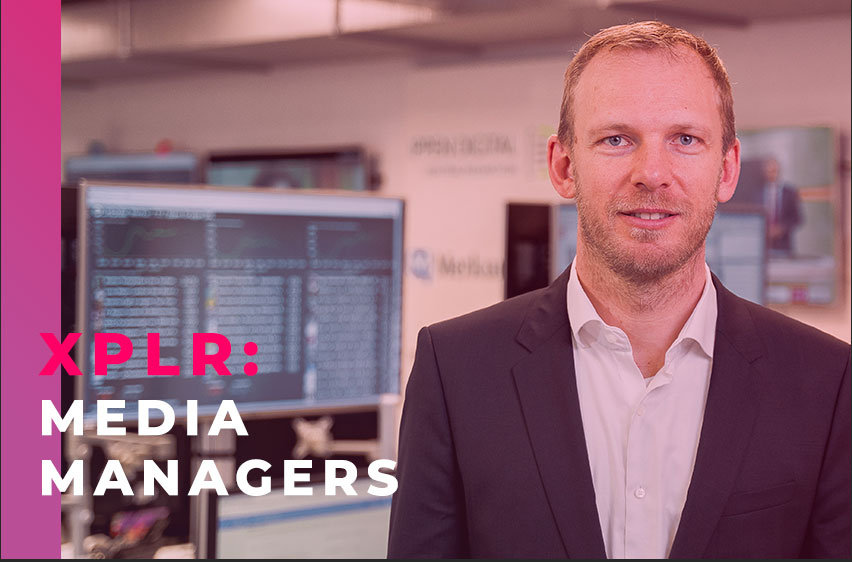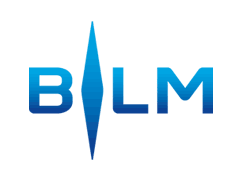
Markus Knall: “We are radically digital”
Ippen Digital’s network of central editorial offices provides more than fifty online portals with news around the clock. These include Merkur.de and the Frankfurter Rundschau. We spoke with editor-in-chief Markus Knall about the success of this editorial network and the future of digital journalism.
Mr. Knall, you have set up Ippen’s first central editorial office that is in charge of a network of local editorial offices. Can you tell us more about the team and your way of working?
Markus Knall: We act as a network; that’s what distinguishes us. The editorial offices work with very different products, but the technology, processes, and guidelines are the same. We have chosen a special organizational structure for the central editorial offices. In the past, the editorial offices have usually organized themselves according to their thematic focus – politics, sports, economics. We take a different approach. Our editors are not primarily reporters. We don’t group our employees according to topics, but according to functionalities. There is a CvD team, an SEO team and an engagement team. There are also some specialist departments – a local team and a video team. However, these teams are mainly digital editors.
Was there any in-house resistance to a central editorial office? Or are the spats between print and online a thing of the past?
Knall: Along with digitization comes big structural change. This is not possible without some debate. But it’s important to talk about. We had to try out and reinvent many things. The development of digital journalism is a flexible process and we can only achieve things by discussing them first.
The figures seem to agree with you. “Merkur.de” grew from 690,000 to 1.66 million unique daily users in 2019. How did you manage that?
Knall: We have understood that digital journalism has to be developed at its core. It is not enough to transfer traditional media to the internet, but we must have a vision. Our goal is to create something independent – editorially, journalistically, and of course economically. We are convinced that a network with common technology, processes, and guidelines is the best answer to the challenges of the digital world. We are successful because we are radically digital.
In your presentation you spoke about “Impact First”. What do you mean by that?
Knall: In the past, we used to talk about “online first” or even “print first”. These models assumed that there were people that could be characterized as typical readers. But we are faced with a wide range of target groups and products. So, we have to ask ourselves which product would be successful for the different target groups. For a loyal 65-year-old reader from our region, the daily newspaper still has the biggest impact. But a 25-year-old student wants something else. “Impact first” means shifting towards customer-focused product development.
In the central editorial offices, journalists collaborate with programmers and performance experts. Do worlds collide there?
Knall: The challenge of the digital industry consists of the increasing range of specializations. We need profound and vast digital skills. This is why we are developing job profiles, like the SEO editor, that did not yet exist a couple of years ago. These people are specialized journalists, not technicians. We have been training SEO volunteers for almost four years now.
The way that journalists work has dramatically changed in the last few years. What do you expect from new colleagues today?
Knall: We are looking for people who are deeply specialized in order to produce excellence. Research and writing are just one of many tasks. At the same time, the ability to reflect and integrate the work of other specialists is needed to avoid knowledge silos or T-Shaped skills. This is a balancing act and colleagues from the SEO team, for example, sometimes take on last-minute work in order to achieve our goal.
A lot of publishing houses have not yet fully adapted to digitization. What advice do you have for your peers?
Knall: We have to acknowledge that the main supposition of the regional editorial industry did not take place. We cannot simply transfer proven analogue products into the digital world and expect the same success. It is not enough to post written texts on the internet or to imitate TV shows with online videos. After 25 years of digital journalism, we have to admit that it doesn’t work like that.
The next challenge is artificial intelligence.
Knall: We post more than 2,000 articles on our network on a daily basis and we reach millions of people. We work 24/7. It is hard for the editors to keep an eye on the details. This is why we work with graphs, recommendations, and editorial assistance so that editors can quickly make important decisions and readers can easily find the right content.
Editorially, this also involves the question of the future role of journalists; algorithms will take over the tasks of journalists, machines will work faster and more precisely. But algorithms also have to be developed, controlled, and tested. Setting agendas and topic management, on the other hand, are still the strengths of human journalists. The cooperation between humans and machines is the next big challenge of digital journalism.
XPLR: More Media Managers
Macht das nicht Sinn? Gerade die kleinen und mittelständischen Unternehmen müssen doch angesichts der Corona-Krise gut überlegen, wofür sie Geld ausgeben.
Jens: Das stimmt. Nur bietet die derzeitige Situation gerade für Unternehmen Chancen, die ansonsten vergleichsweise wenig Geld für Social Media Marketing zur Verfügung haben. Ich denke da an das Café an der Ecke oder den Buchladen in der Kleinstadt – an all diejenigen also, die besonders unter der Ausgangssperre leiden.
Das liegt daran, dass sich gerade viele Unternehmen mit digitaler Werbung auf Kanälen wie Facebook oder Instagram zurückhalten, obwohl sie ihr Budget nicht zwangsläufig gekürzt haben. Gleichzeitig verbringen die Leute aufgrund der eingeschränkten Freizeitaktivitäten mehr Zeit in den sozialen Netzwerken. Diese Faktoren führen dazu, dass der Wettbewerb um Impressions, Link-Klicks und Interaktionen abnimmt.
Heißt: Wer jetzt investiert, zahlt weniger für Klicks und Conversions als sonst?
Jens: Genau. Dazu kommt, dass man mit geringen Budgets ein wenig experimentieren kann. Schon mit 15 oder 20 Euro am Tag können sich diejenigen ausprobieren, die sonst die Finger von Facebook Ads lassen: So kann das Café an der Ecke schon mit wenig finanziellen Aufwänden die Anwohner*innen in der Nachbarschaft darüber informieren, dass es einen Lieferservice eingerichtet hat und der Kuchen jetzt an die Haustür gebracht wird.
Im Übrigen bietet Facebook gerade viele Infos für Geschäfte, Läden und Unternehmen an, um bisher analog ablaufende Prozesse zu digitalisieren.
Hast du den Eindruck, Corona bringt gerade auch die letzten Digitalisierungsskeptiker ins Web?
Jens: Es gibt auf jeden Fall einen Schub. Die Digitalisierung wird vorangetrieben. Besonders erfreulich ist dabei die Fantasie, mit der auch Unternehmen, die bisher nicht sonderlich Social Media-affin waren, mit ihrer Community in Kontakt treten.
Zum Beispiel hat ein LKW-Hersteller kürzlich Ausmalbilder für Kinder auf seiner Facebook-Seite gepostet. Das ist kreativer Content, der jede Menge zur Markenbindung beiträgt. Die derzeitige Situation zwingt die Unternehmen zum Umdenken. Plötzlich geht all das, was vorher vielleicht aus strategischen Gründen nicht ging. Die Menschen trauen sich jetzt etwas im Netz. Die Ergebnisse sind großartig.
Auch Allfacebook musste aufgrund von Corona kreativ werden. Die Allfacebook Marketing Conference fand im März statt in München virtuell statt. Die „Vor Ort“-Konferenzausgabe ist in den August gewandert. Wie waren eure Erfahrungen mit der digitalen Konferenz?
Jens: Zehn Tage vor der Konferenz haben wir entschieden, das Event virtuell stattfinden zu lassen. Dieses Angebot wurde sehr gut angenommen. An der virtuellen Konferenz haben knapp 450 Leute teilgenommen, also rund die Hälfte der Personen, die wir vor Ort erwartet hätten. Mit einer so hohen Beteiligung haben wir nicht gerechnet. Wir dachten, dass die Leute derzeit nicht den Kopf für so etwas haben. Aber das Gegenteil war der Fall. Zusätzlich findet vom 24. bis zum 26. August erstmals eine Sommer-Ausgabe der Konferenz statt.
Ist die virtuelle Ausgabe eine Option für die Zukunft?
Jens: Ich persönlich bin ein Freund von physischen Events. Der persönliche Austausch ist doch nochmal etwas anderes, auch wenn es inzwischen tolle digitale Networking Tools gibt. Die virtuelle Konferenz war eine gute Erfahrung und das Feedback war durchweg positiv. Aber dennoch: Ich freue ich mich auf die Allfacebook Marketing Conference im Sommer.
Screenshots aus dem VR-Adventure „Blautopf VR“ (Foto: Philipp Schall, TELLUX Next GmbH)



